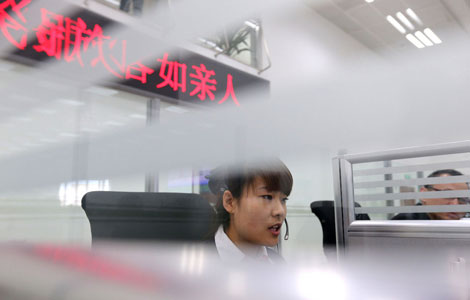Time to stop Abe's evil game
Updated: 2014-01-09 07:24
By Wen Zongduo (China Daily)
|
||||||||
When disagreements occur, Abe dares to defy, to accuse and to challenge. "So call me, if you want, a right-wing militarist," he said in September, to the applause of his audience in an auditorium. He said China and the Republic of Korea "should be blamed" for the current trouble. Unwilling to back down in the face of truth and reason, he and his fellows teach their children to remember that Japan would have been the Asian savior if not for the atomic bombs, that Japan has been framed in the Nanjing Massacre, and that Japan faces the "China threat".
Yet he pledges Japan will "never wage a war" again more than once in the statement. When he made the same pledge after becoming prime minister for the second time, many hoped he would be true to his words and mend Japan's ties with its neighbors, even if he didn't follow postwar Germany to ban tributes to war criminals.
Instead, Abe has kept producing surprises. In April 2013, he exclaimed "Long live the emperor", the very words Zero Fighter pilots used during their brutal assaults before and during World War II. In May, he boarded a military plane numbered 731, the code for the Japanese army unit, which used Chinese and Koreans in germ-war experiments and dropped chemical bombs on Chinese homes.
Throughout last year, he pushed for breaking Japan's postwar pacifist tradition and exporting weapons. He fattened the defense budget to build warships and military aircraft, and to increase defense forces' squads to use them to land on other countries' territories, and directed defense programs at China. He flew across Asia to plant and spread the fear of Chinese people, showcase the "yen-charisma", while hosting Southeast Asian leaders and trying to prove his value for US plans in East Asia.
Abe must have assumed that after all that he has done, time was ripe to let his followers share his pride. While other heads of government or state report their achievements and shortcomings to parliamentarians or the people, Abe addressed ghosts.
Abe's written statement says his visit to the shrine was "to report before the souls of the war dead how my administration has worked for one year". He is anxious to cling to power, to consolidate the support of his followers weakened by his forcible enactment of a counter-freedom law, and to cap his one year in office by crowning himself for making substantial achievements in side-stepping opposition to the revision of the US-orchestrated pacifist Constitution, the last hurdle in his grandfather's as well as his plan to re-militarize Japan.
Abe no longer hesitates to make his aim public. In his New Year message and in defiance of international criticism, Abe stuck to his adamant stance of intensifying a national debate "toward a revision of the Constitution" and turning "the Self-Defense Forces into a full-fledged military".
The mention of constitutional revision used to be taboo in Japanese politics and caused the fall of many senior officials. In just one year, Abe has succeeded to move closer than even the most powerful school of politicians to revising the Constitution. Allowing him and his ilk to pull down that monument of peace and further negate (and even reverse) the postwar trials will harm the cause of peace in the Asia-Pacific.
The author is a writer with China Daily. wenzongduo@163.com

 US skiing star Lindsey Vonn out of Sochi Olympics
US skiing star Lindsey Vonn out of Sochi Olympics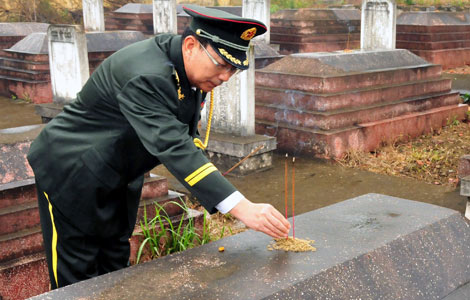
 Overseas cemeteries for Chinese dead
Overseas cemeteries for Chinese dead
 Check out cool new gadgets from CES 2014
Check out cool new gadgets from CES 2014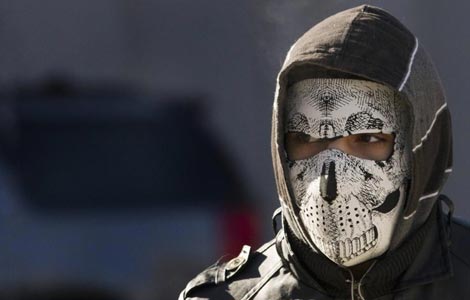
 Cold snap sweeps US
Cold snap sweeps US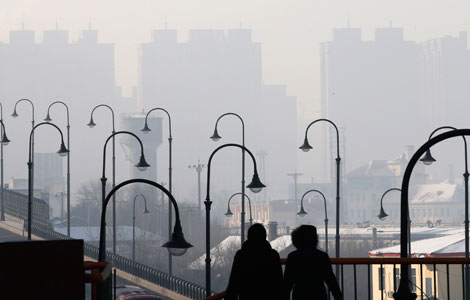
 Pollution's effect on health not clear yet, officials say
Pollution's effect on health not clear yet, officials say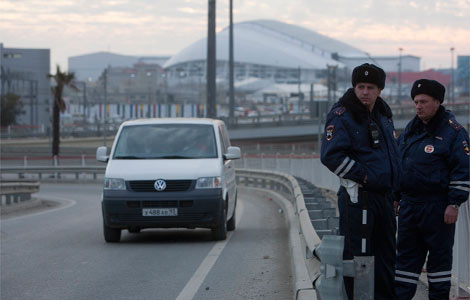
 Russia imposes security clampdown in Sochi before Olympics
Russia imposes security clampdown in Sochi before Olympics
 X-ray reveals crying toddler had 5-cm needle inserted in his lung
X-ray reveals crying toddler had 5-cm needle inserted in his lung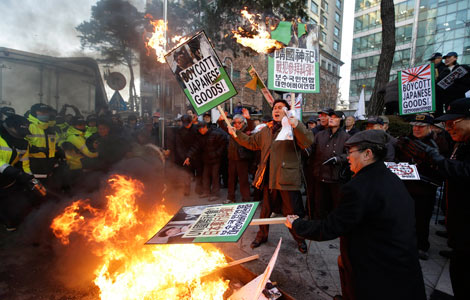
 Tokyo urged to end militarism
Tokyo urged to end militarism
Most Viewed
Editor's Picks
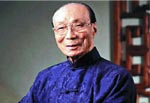
|

|

|

|

|

|
Today's Top News
The changing face of Chinese ODI in US
China imports more US-built cars
China has most outbound tourists
US troop deployment stoking peninsula tensions
Top court seeks judicial transparency
Syria chemical weapons shipped out
US jobless bill clears Senate hurdle
Former Miss Venezuela shot dead
US Weekly

|

|


